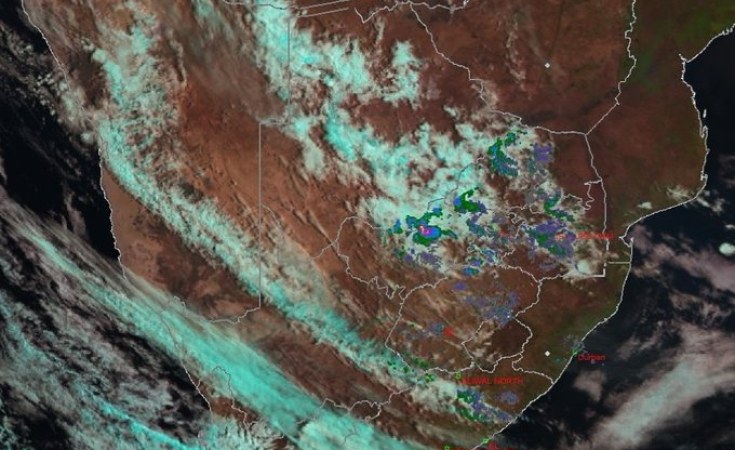The National Launch and Consultation Workshop on Early Warning for All (EW4All), organised by the Mauritius Meteorological Services (MMS) in collaboration with the National Disaster Risk Reduction Management Centre (NDRRMC), the World Meteorological Office, and the United Nations (UN) Office for Disaster Risk Reduction, opened on, 19 December 2023, at the Hilton Hotel in Flic en Flac.
The Senior Chief Executive of the Ministry of Local Government and Disaster Risk Management, Dr Dhanandjay Kawol; the Director of the MMS, Dr Ram Kumar Dhurmea; and the UN Representative, Mr Sébastien Vauzelle, were present for the opening ceremony.
This two-day workshop saw the participation of stakeholders from the NDRRMC, the MMS, Line ministries and departments, Pillar leads and Implementing Partners of the EW4All Initiative, civil society organisations and NGOs active in Early Warning Systems (EWS), the private sector, including the mobile network operators, the media and broadcasters, as well as donor agencies.
In his address, Dr Kawol who intervened on behalf of the Minister of Local Government and Disaster Risk Management, Dr Mohammad Anwar Husnoo, recalled that climate change has heightened the unpredictability of weather patterns, making timely and accurate information a lifeline for the people. He observed that it is imperative to take bold and decisive actions which not only focus on response to disasters but also capitalise on the prevention and reduction of disaster risks and preparedness measures.
He reaffirmed the importance of the EW4All global initiative adding that an EWS is a shield that protects lives, properties, and livelihoods. An EWS therefore aims to provide citizens with the critical information they need to make life-saving decisions and ensuring that communities are well-prepared and equipped to face the challenges of climate change, he added.
Dr Kawol highlighted that the Government of Mauritius is committed to strengthening its EWS to meet the evolving needs of the people. He stressed the need to invest in technology, infrastructure, and human resources to build a comprehensive system that not only warns but also empowers citizens with the knowledge and tools to protect themselves and their families.
He further mentioned that the National Multi-Hazard Emergency Alert System project implemented by the Government is in line with the EWS. He indicated that the first phase of the project provides for a reliable high-performance system to disseminate warnings and alerts to a maximum number of people and stakeholders in the Republic of Mauritius within an acceptable time frame through a number of communication channels namely customised SMS target groups, television, radio, and the internet (including social media).
For his part, the Director of the MMS, Dr Ram Kumar Dhurmea, pointed out that as a Small Island Developing State, the Republic of Mauritius is particularly vulnerable to the impacts of climate change. Rising temperatures, changing precipitation patterns, and an increase in the frequency and intensity of extreme weather events are challenges that we cannot control, he said. He however observed that the impacts on grounds can be controlled and minimised through proactive actions and decisions.
He emphasised that an advanced and effective EWS is a necessity for the protection of communities. The EW4All is about building a culture of resilience, preparedness, and particularly collective responsibility to empower communities to make informed decisions so as to prevent hazards from turning into disasters, he added.
As for the UN Representative, Mr Vauzelle, he underlined that the EW4All initiative was launched at COP27 in 2022 by the UN Secretary General. He also commended the Government of Mauritius for agreeing to be part of the first 30 countries around the globe which are piloting this initiative.
Speaking about the importance of an EWS, Mr Vauzelle underlined that it should be people-centered as well as empower the target population to act on time and in the most adequate manner. Furthermore, he stated that it is important to ensure that EWS developed are inclusive and leave no one behind. It is the most vulnerable of our society who need to be protected the most and thus any tools developed should cater for their needs and abilities to interact with them, he added.
The EW4All Initiative
This global initiative aims to ensure that everyone on Earth is protected by early warnings by 2027. It comprises four pillars namely Disaster risk knowledge; Observations and Forecasting; Dissemination and communication; and Preparedness to respond.


